I’m not a big fan of AI music generation. We don’t need more background noise and homogenous tracks. (We need bold, ambitious creativity, full of human emotion).
However, I’m very bullish on AI helping artists do … everything else.
All the stuff they hate doing.
Most artists just want to make music, but they’re forced to be dozens of different roles:
A business manager, a marketer, social media expert, record label, publisher, live agent and so many others.
The context-switching is draining … especially for creative minds.
So, I wanted to see if AI could help take some of that away.
I got pretty close. It’s definitely not perfect but I wanted to share some of my experience — I think it might be useful.
TL;DR
This set up is very good for:
Planning rollouts
Big picture strategy around your music goals
Research and finding contacts
Creative ideas and inspiration
It’s not good enough yet for:
Execution (outreach, publishing your content)
Tracking social trends
Note: There are lots of guides out there for using ChatGPT as a musician, but they all miss the two most important steps — giving it personal context and metrics about you. So pay special attention to Step 1 and 2 in this guide.
Step 1: Create your music manager
First we need to turn your LLM (ChatGPT, Claude or Perplexity) into a hyper-personal music manager that knows everything about you.
In ChatGPT you’ll need to use ‘Projects’ (or ‘Spaces’ in Perplexity). These are hyper-specific workspaces for a particular project or goal. In this case: growing your music career.
You’ll give it lots of personal context and direction about you and your music. Then it will tailor every answer and suggestion around this goal going forward and keep memories about what you’ve discussed.
If you don’t use this feature, then your LLM will just give you generic music advice, which isn’t much better than a Google search.
Here’s the first Project prompt I used for an artist in Perplexity:
You should include 4 things to get the best results:
Context about you - give it LOTS of detail about your music style and your current career achievements or baseline.
Your goals - tell it what you want to achieve so that it will always have this goal in mind when making suggestions for you.
Its role - explicitly say “you are my music manager and I need your help with XYZ”
What does success look like - be very clear about what success looks like for you.
Step 2: Analyze your audience and current metrics
Next you need to give it hard statistics about your audience and your career so far.
Here’s what I did:
Go to Chartmetrics (sign up for a 7-day free trial)
Get the Onesheet link for you or your artist which summarizes the streaming and social audience metrics.
Put the link into your LLM project with the following prompt: “Analyze my fans based on this link, and give me strategic recommendations for growing and finding opportunities.”
Right away it’s going to find some hyper-personalized strategies for you based on real data. For example, here’s a good response I got for an artist I recently worked with.
It realized the strategy used to break the artist from zero → mid-level would be less effective as they grow.
Step 3: Create a “big picture” strategy
Next: based on your goals, context and analytics, ask your new music manager to create a “big picture” strategy with you for the next two years. Tell it to “ask as many clarifying questions as you need to make the best strategy”.
This section might take some back and forth to land on a strategy you’re happy with. Don’t expect a perfect outline first time but keep it nudging it until it gets better.
When you’re finished, use these three prompts:
Compile everything we agreed in this conversation into an actionable 2-year plan.
Go back and check everything in this plan. Are you sure it’s the best strategy based on my goals? Are we missing anything?
Commit this to memory and use this strategy for every conversation going forward.
Step 4: Get into the details: releases, live events, sync, social strategy
Now that your AI manager has all your goals and context, you can get more granular.
Record label
Create a six week rollout plan for my next single.
Find 3 artists who could remix my single or collaborate.
Which are the best distributors for an independent edm artist.
Tell me everything about the new Clipse rollout (or Justin Bieber … or anyone you like!)
Publisher
This one was quite powerful. Most independent artists have no idea how many performance royalty agencies they should be registered with in order to collect all their money. One prompt turned up 21 agencies around the world, and ranked them based on priority.
I also asked it to find me sync-licensing opportunities. It gave me a few self-serve platforms where I can upload music. Crucially, I asked it to find me music supervisors who regularly place my genre of music … and it actually found them.
Live agent
Identify promoters in London that work with emerging electronic artists, and get me contact information.
Identify festivals in 2026 that have slots open for emerging artists.
These prompts gave me 4 promoters, 9 venues + all their contact details. The festival prompt gave deadlines and submission requirements.
Social strategy
This one is less effective (LLMs don’t track social data very well yet). However, you can still get some broad ideas. Here’s an idea I tried that worked quite well.
This prompt gave me examples of artists who do this well (it suggested Marshmello), some creative ideas (DAW production snippets), and a rough weekly content schedule.
Step 4. Creative assistant
Midjourney is my go-to for creating quick artwork ideas. You can build a moodboard of styles you like and use that as a basis for generating artwork and ideas.
The platform recently launched video support, which I haven’t gone deep on yet but some videographers are using it to create full music videos (and they’re pretty good).
This all comes down to personal preference. You might want full creative control of your artwork and videos. Others might use it for inspiration and generating ideas. And some might use it for the full creative process.
Final thoughts
Everyone is obsessed with AI music generation and how it’s impacting artists. But I believe the conversation should be oriented to how AI can help artists do all the things they don’t want to do.
Using AI to build a team around you might be the most high-leverage things you can do as an independent musician. It’s not 100% there yet. It can’t go out there and hustle for you (yet). And it’s not intelligent enough to notify you of opportunities. But if you’re proactive, it can help you reduce decision-making and spend less time on research and contacts. Hopefully leaving you with more time to do what you’re actually good at: making music!




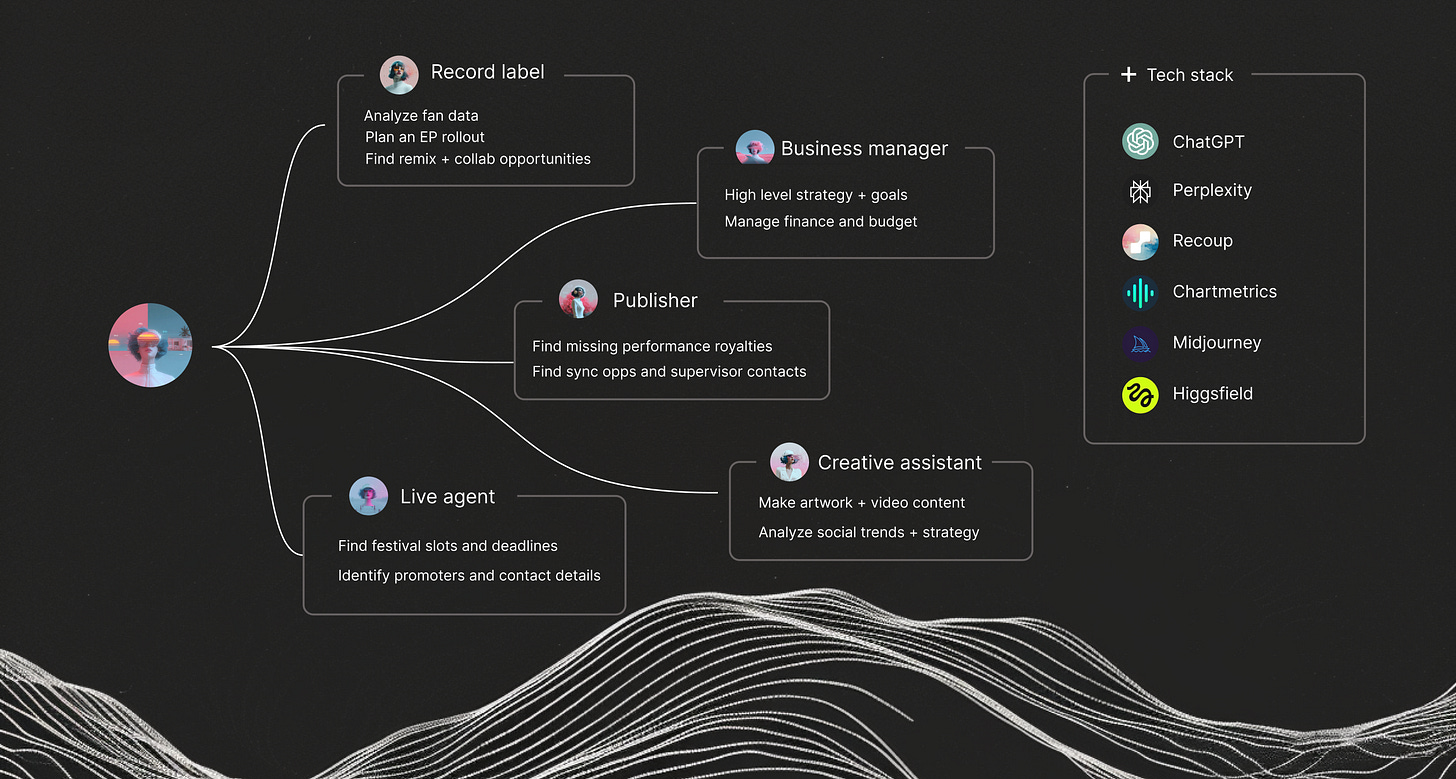



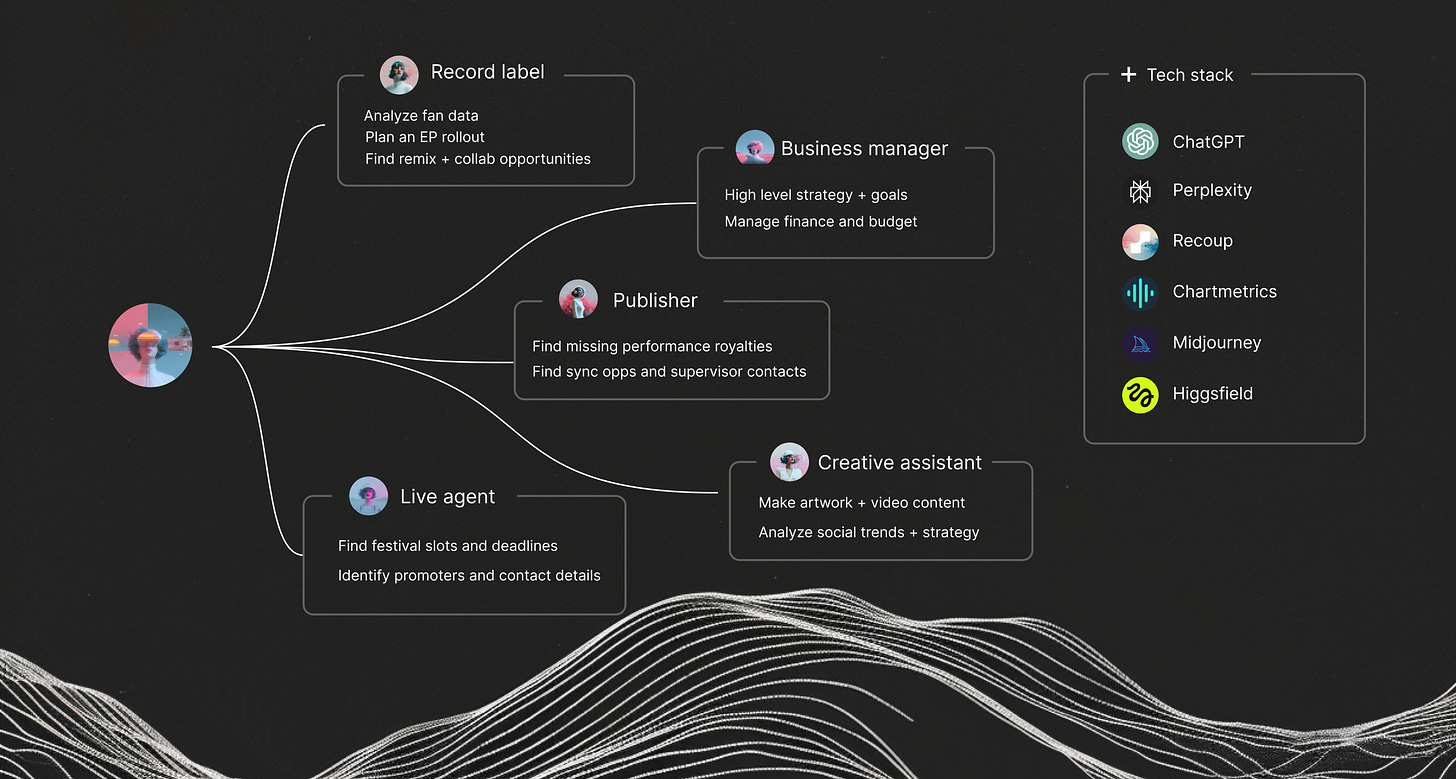

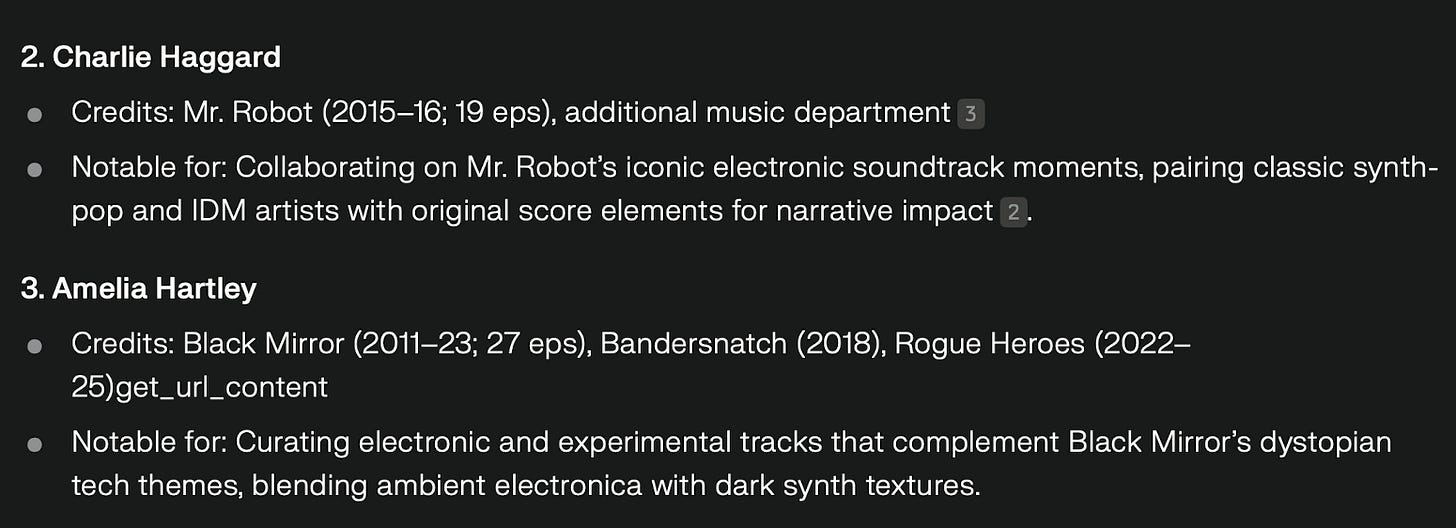


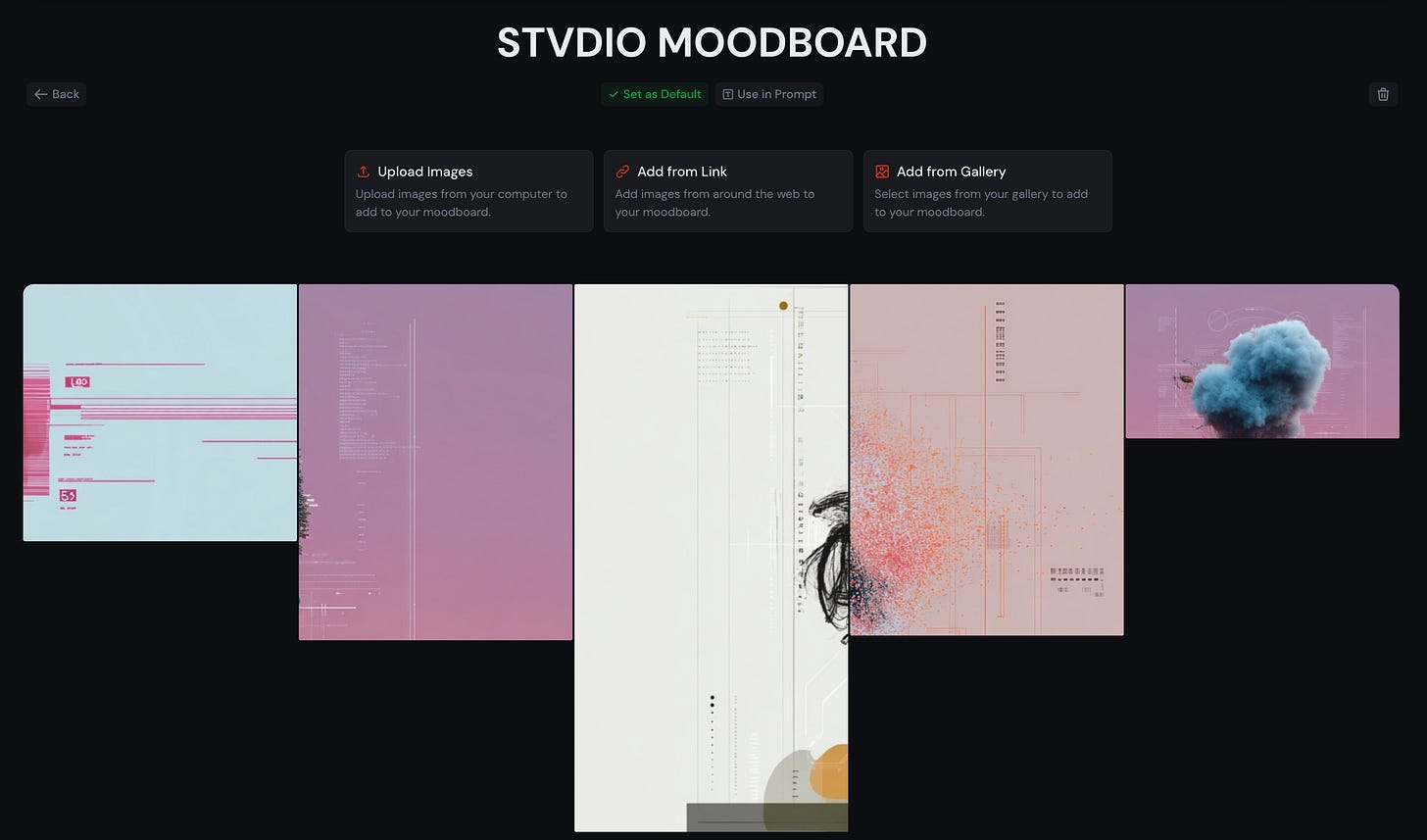
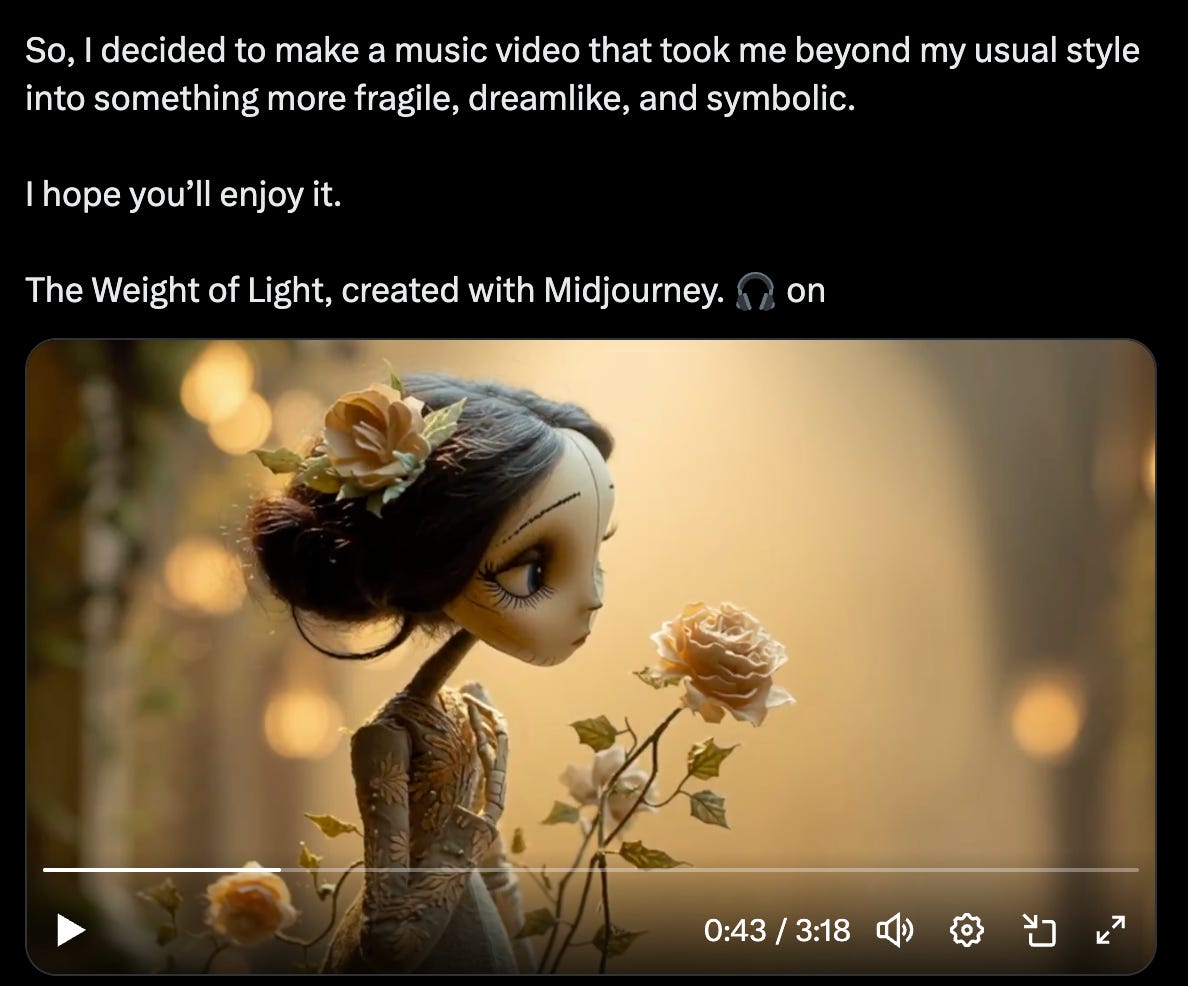
Excellent, I have already used AI to be all these people until I can afford to hire them. I think AI can help emerging artists. Often you see strategies and advice to go from 100k to 1M, but rarely from 0 to 1k, because there is no money there (or people just want to scam you). I think AI can fill that gap as you have demonstrated.
Thanks for sharing this! Very interesting. Agree that AI as a tool for automation can be a positive. Did you consider using n8n for any of this?